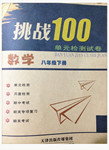题目内容
Before I came to China, I had heard that, although North Americans eat more than Chinese, Chinese eat better.Since I have come to China, I have been able to experience these differences first-hand.A whole new world of food has been opened up to me.
Along with these new experiences came the quite unexpected introduction to the rituals(惯例) associated with eating.For example, shortly after arriving, I was gently criticized for filling somebody’s teacup all the way up instead of half way.This was a signal to the person that I desired that he leave.
There may be mixed messages about what it means when you do something associated with food.But the fact is that there may be a message contained in the preparation, serving and consumption(吃喝) of food in China.This was an idea that was totally new to me!
More than one Chinese has made the comment to me that they were unhappy with the results of inviting a foreigner to a meal.They told me that the foreigner was not appreciative of the meal that was served to him or her and was hard to please.
Having played the part of the foreigner at more than one Chinese buffet, I can understand where the misunderstandings come from.I myself have felt very uncomfortable during some of the dinners I have been invited to.
One time I was invited to a dinner in a famous restaurant in Tianjin.Its menu was based on seafood.I was still relatively new to the concept (概念) that your fish would be brought live to your table.In Canada you are never introduced to your meal before hand.Something we don’t like is considering what our food looks before the actual consumption.
However, having been in China for one year, I went along and helped point out some of the selections for the evening’s meal.I hesitated at the scorpions(蝎子), but swallowed my distaste and indeed found later that they were tasty.
The meal was winding its way(蜿蜒向前) along without any problems.Then they brought out the lobster(龙虾).I looked at it and then looked at it again and noticed that it was still moving! It had been brought out live to show that our raw lobster was indeed very fresh.
At that point, I nearly lost it.It took all my composure(镇定) for me to stay seated at the table and hurl(冲进) myself in the bathroom and bring up the contents of the previous dishes.
Now the interesting thing is that when I tell that story to a foreigner, the reaction is always the same: Horror, sympathy, shock.When I tell the same story to Chinese, they don’t understand my point of view.In fact, I often think that they believe that there is something truly wrong with me and not with the fact a lobster had been served live at the table.
1.According to the author of the passage, it is the Chinese custom ___________.
A.to fill somebody’s teacup all the way up
B.not to fill somebody’s teacup full
C.not to fill somebody’s teacup half way
D.not to desire the guest to leave
2.The author felt very uncomfortable during some of the dinners because _________.
A.she disliked scorpions and lobster
B.the service in the restaurants were not good enough
C.she disliked that the things were brought live to the table
D.she thought the food was not fresh enough
3.It can be inferred from the last paragraph of the passage that___________.
A.the author can get support from foreigners
B.Chinese don’t understand the author’s point of view
C.something is truly wrong with the author
D.different countries may have different rituals of consumption
4.The word “buffet” in the fifth paragraph means __________.
A.meal B.party C.food D.service
BCDA

 挑战100单元检测试卷系列答案
挑战100单元检测试卷系列答案